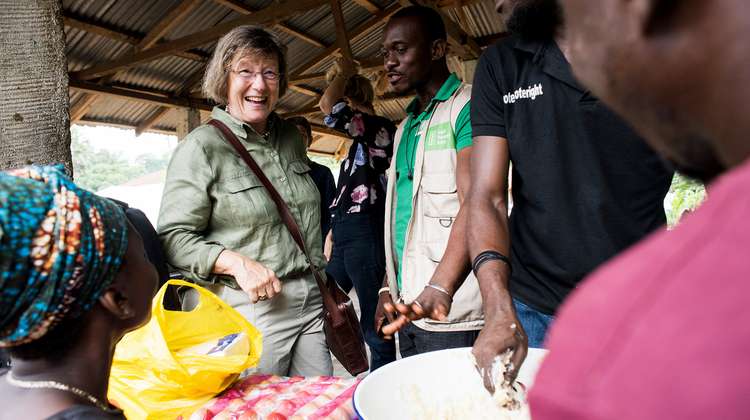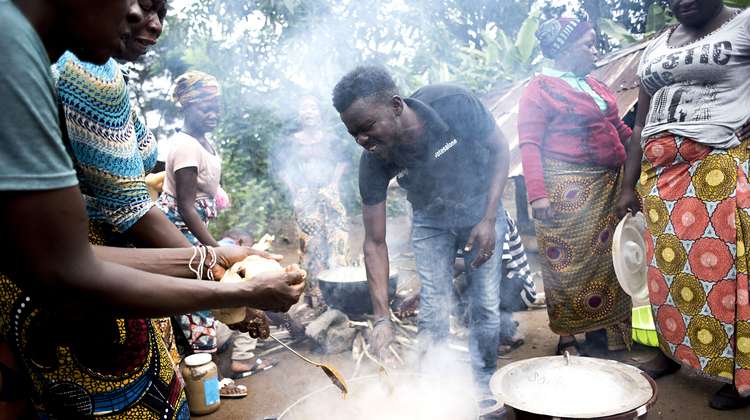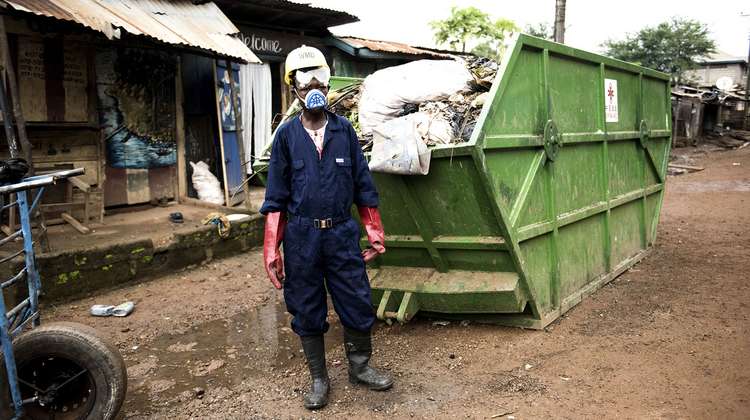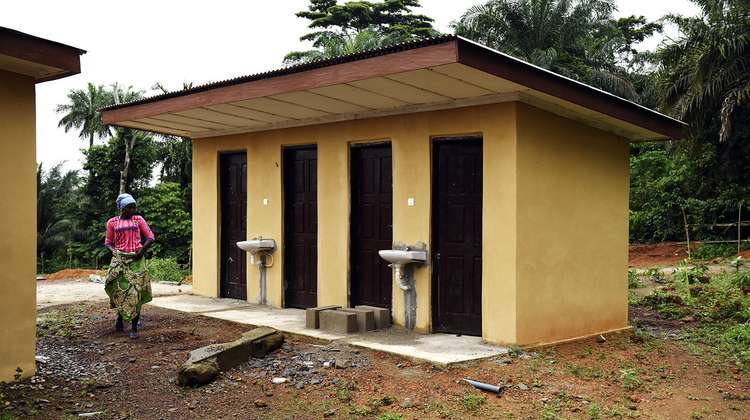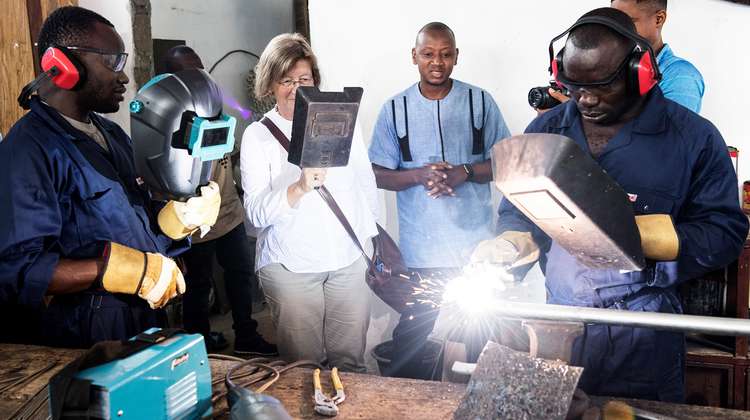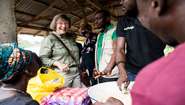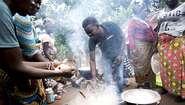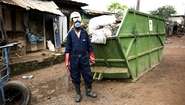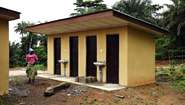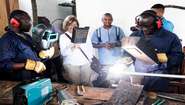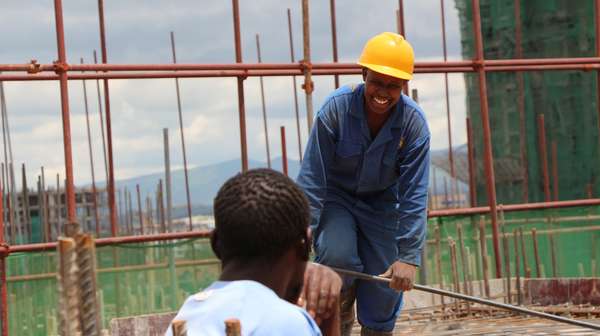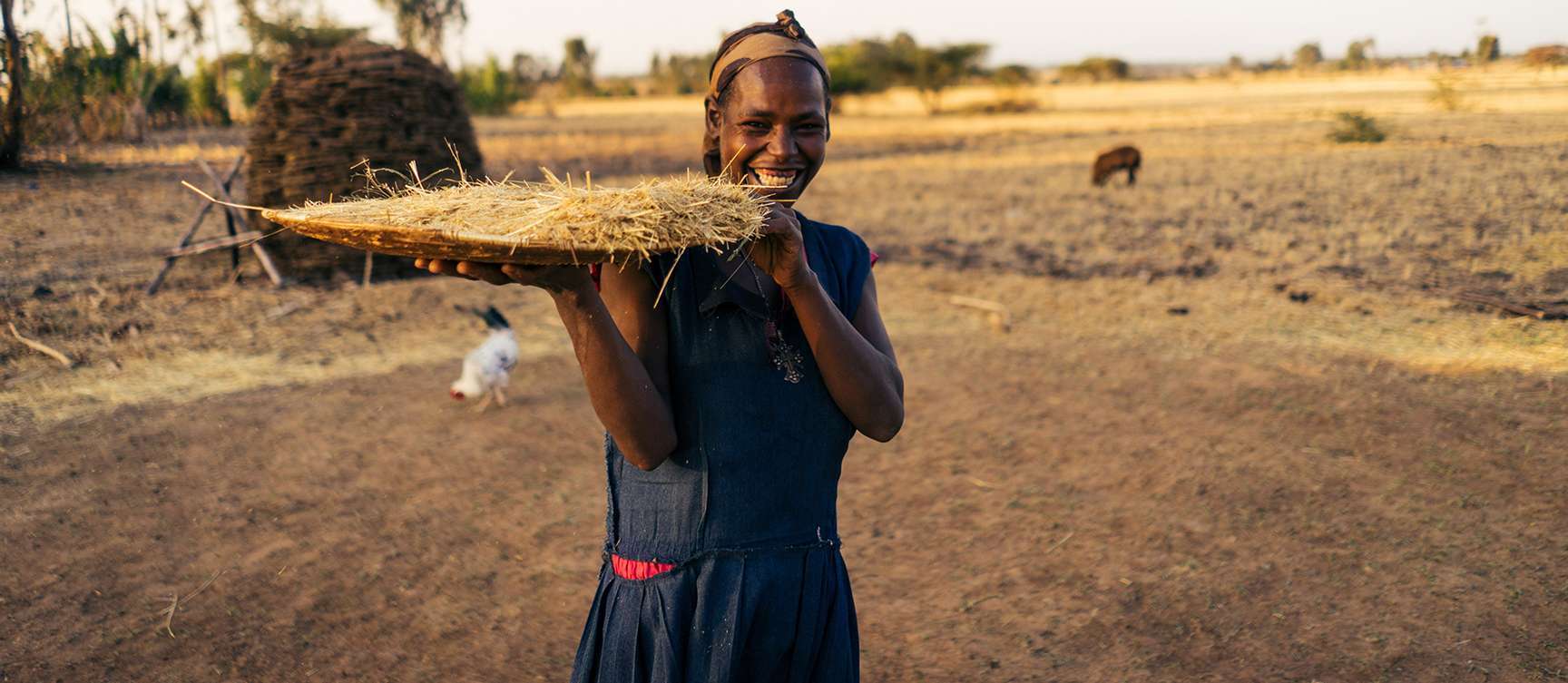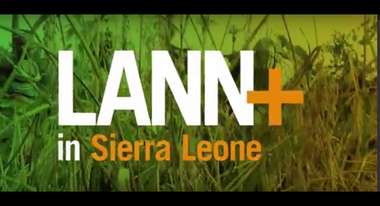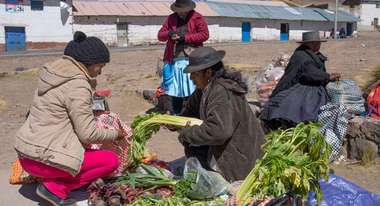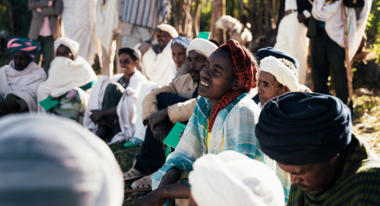Welthungerhilfe and local partners offer the "Skill up!" training programme in several countries and create prospects for young people in developing countries.
Education is the key to fighting hunger
On her first visit to a project country in her official capacity as president of Welthungerhilfe, Marlehn Thieme saw how people learn to help themselves in Sierra Leone in areas ranging from waste management and renewable energy to vocational education for young people.
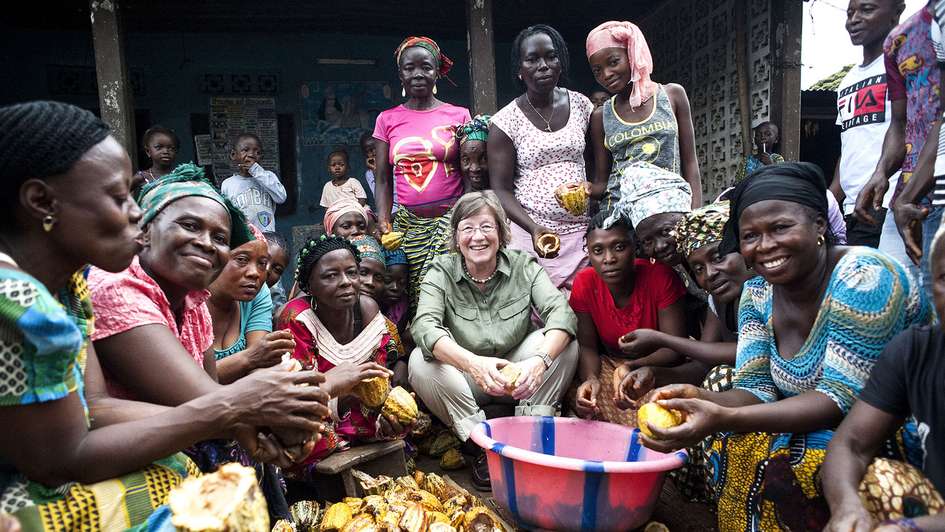
Discarded bottles, flip-flops, plastic bags, and packaging - I could hardly tear my gaze away from the mass of rubbish swimming by as we entered Freetown by water taxi. I knew that Sierra Leone’s capital was having trouble with its waste disposal, but seeing it with my own eyes was still shocking.
This is my first time travelling to one of our project countries as the president of Welthungerhilfe. I want to get to know my colleagues on the ground and learn more about our projects from them. Sierra Leone is still suffering from the effects of the decade-long civil war and the 2014 Ebola epidemic. Efforts to rebuild the country and come to terms with the past are progressing slowly. Sierra Leone is still one of the world’s ten poorest countries. Many people subsist on what they can grow on their fields, but that is often not enough. This leaves me all the more curious about how our projects are helping them in the long term.
Improving Urban Waste Management
Entering the city of Kenema, I immediately notice the difference: The streets are clear of all rubbish and debris. I see children on their way to container collection stations, balancing plastic bowls filled with garbage on their heads. The stations look clean and tidy, and a rubbish container next to a market is even staffed by an assistant who ensures that everything runs smoothly, and that this container makes it to the station too.
Welthungerhilfe declared war on rubbish in three cities in partnership with local authorities. Thanks to their collection points, recycling programmes, specially trained rubbish collectors, and a modern disposal site outside of city limits, these cities are now among the country's cleanest. I am thrilled to see how a Welthungerhilfe project is inspiring people to change their thinking and do their bit.
Expanding Renewable Energy
The fact that Sierra Leone is developing despite its poverty is evident in the advertisements promoting prestigious mobile service providers in even the smallest villages. Many of these present the mobile phone as a status symbol. By contrast, the energy infrastructure is underdeveloped. The rural population generally has to meet its energy needs from firewood, charcoal, or diesel generators, harming both the environment and people's wallets because few can afford diesel or kerosene. Welthungerhilfe is helping to address this issue by working to expand renewable energy.
On a visit to a remote women’s clinic that was recently equipped with solar panels, we see proper lighting that means that babies are no longer being delivered under torchlight. There is also enough power to run a small laboratory equipped with a microscope as well as a refrigerator for storing heat-sensitive materials and medications. This is a great help to the clinic, and Sister Antonia and a volunteer from the USA, Dr. Ayesha Venkateswaran, are delighted to see us, saying, “You made our day!”
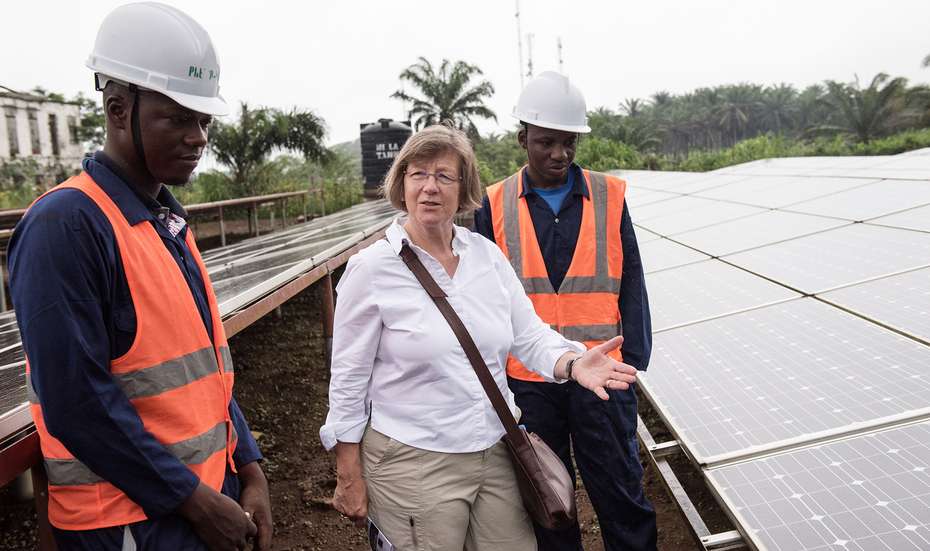
Skill Up! Graduates Are Sierra Leone's Future
Back in the city of Kenema, 90 young men and women in colourful festive dress await our arrival. They are graduates of Welthungerhilfe's Skill Up! vocational education programme. It is a big day for them: They will be receiving the certificates confirming their professional knowledge and skills. These are their tickets into the job market and to positions that open up new personal and professional opportunities.
As the certificates are handed out, the graduates congratulate and encourage each other, some with tears in their eyes. They are the first in their families to graduate. The commissioner of the National Youth Commission of Sierra Leone, Ngolo Katta, is there as well, personally congratulating the graduates. He encourages them to play their part in Sierra Leone's future by teaching, instructing, inspiring, and motivating others.
The pride and joy exhibited by these young people moved me deeply. Along with many others in Sierra Leone, they showed me that the key to fighting hunger is to always keep learning. I, too, learned a lot in Sierra Leone, and it impressed me that Welthungerhilfe's work can make such an enduring difference in the lives of so many people.





